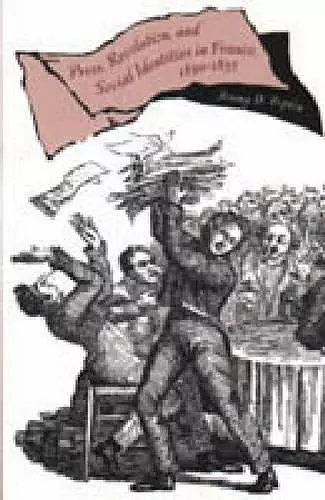Press, Revolution, and Social Identities in France, 1830–1835
Format:Hardback
Publisher:Pennsylvania State University Press
Published:1st Oct '01
Currently unavailable, and unfortunately no date known when it will be back
This hardback is available in another edition too:
- Paperback£38.95(9780271021539)

In this innovative study of the press during the French Revolutionary crisis of the early 1830s, Jeremy Popkin shows that newspapers played a crucial role in defining a new repertoire of identities—for workers, women, and members of the middle classes—that redefined Europe’s public sphere.
Nowhere was this process more visible than in Lyon, the great manufacturing center where the aftershocks of the July Revolution of 1830 were strongest. In July 1830 Lyon’s population had rallied around its liberal newspaper and opposed the conservative Restoration government. In less than two years, however, Lyon’s press and its public opinion, like those of the country as a whole, had become irrevocably fragmented. Popkin shows how the structure of the "journalistic field" in liberal society multiplied political conflicts and produced new tensions between the domains of politics and culture. New periodicals appeared claiming to speak for workers, for women, and for the local interests of Lyon. The public was becoming inherently plural with the emergence of new "imagined communities" that would dominate French public life well into the twentieth century.
Jeremy Popkin is well known for his earlier studies of journalism during the eighteenth century and the French Revolution. In Press, Revolution, and Social Identities in France, he not only moves forward in time but also offers a new model for a cultural history of journalism and its relationship to literature.
“Popkin revives interest in a fascinating period that has been relatively neglected in recent years.”
—Paul Spagnoli History: Reviews of New Books
“This readable, stimulating, and richly textured book charts new courses for the study of the nineteenth-century French press and will have considerable resonance in the fields of gender, social, and revolutionary history. It is arguably Popkin’s most important achievement to date, and undoubtedly his most controversial.”
—Simon Burrows American Historical Review
“Popkin’s is a powerful argument for the study of the press to ve moved to the very center of cultural history. Furthermore, it offers a model for future work in the field, particularly in its treatment of a wide range of important issues related to the press, such as the reading practices already mentioned and the way in which journalistic accounts were transcribed in the ‘higher’ discourses of imaginative literature and history. This fascinating book should therefore be required reading for students of the period.”
—Paul Rowe MLR
“Popkin’s thorough, insightful, and admirable study makes a strong case for ‘press history,’ underlines the growing importance of the press in France during the period in question, and adds to our understanding of the significance of the Revolution of 1830.”
—John Merriman Canadian Journal of History
“It is an impressive demonstration of how the insights and methods of the new cultural history can enrich the history of the press.”
—Journal of Modern History
ISBN: 9780271021522
Dimensions: 229mm x 152mm x 26mm
Weight: 653g
344 pages